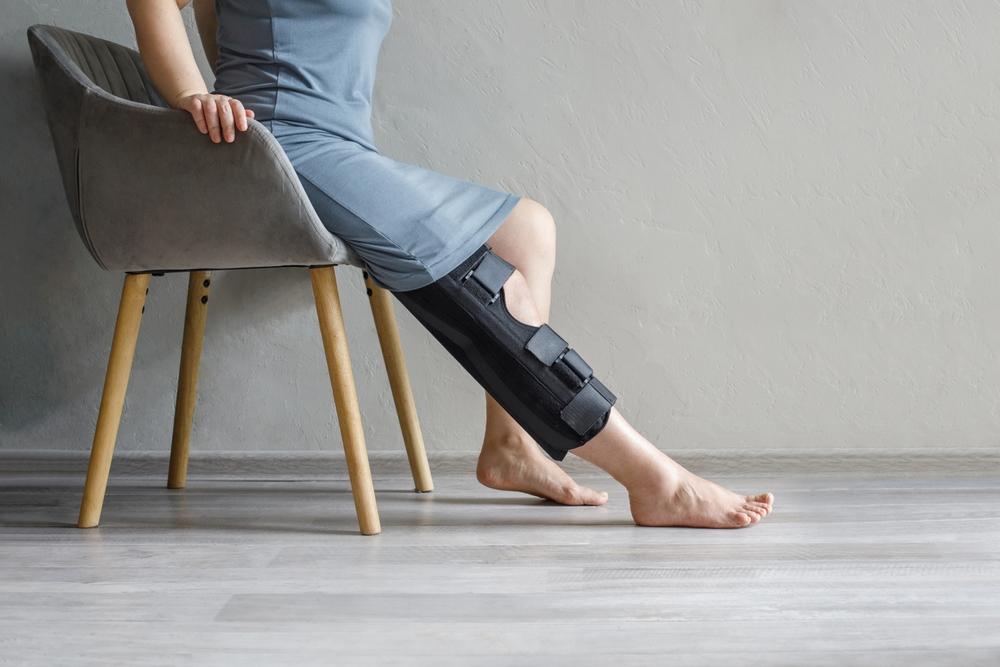What is Comparative Negligence and How Does It Affect Your Claim?
The Distasio Details:
- What is comparative negligence? It is a legal rule that reduces compensation based on your percentage of fault.
- Florida comparative negligence laws changed in 2023 to a modified comparative negligence system, meaning if you are determined to be more than 50% at fault, you cannot recover any compensation
- Florida is a comparative negligence state and understanding how this law works can help protect your rights after an accident.

What exactly happens if you’re partly blamed for an accident that injured you? And how does that affect Floridian’s claims?
Every day, thousands of Floridians often realize that the law recognizes that more than one party can contribute to an accident, including you. This is where many find themselves reeling from surprise, as they may not understand or have even heard of comparative negligence. Protecting your rights and your ability to seek fair compensation becomes critical.
In this article, the Distasio team will explain the essentials of Florida comparative fault laws, any recent legal changes, and how these rules might affect your personal injury claim. From injuries sustained in a car accident to slip-and-falls or medical malpractice, we’ll help you understand this key concept so you can always make the informed decision that is right for you.
What is Comparative Negligence?
Comparative negligence is a legal rule used to determine how much compensation an injured person can receive when they are partially at fault for the accident that caused their injuries. Instead of an “all or nothing” system, compensation is reduced according to the degree of fault assigned to each party.
For a quick example:
If a jury finds you were 20% at fault for a car accident and your total damages amount to $100,000, you would be eligible to recover $80,000, your damages minus the percentage of fault.
Is Florida a Comparative Negligence State?
Yes, Florida is. It is also important to note that the law has changed recently.
Until 2023, Florida followed a pure comparative negligence system. This meant that even if a person was 99% responsible for an accident, they could still recover 1% of their damages.
On March 24, 2023, Gov. Ron DeSantis signed House Bill 837 (HB 837) into law. This reform introduced modified comparative negligence in Florida rules. Under this new system, if a plaintiff is found to be more than 50% at fault, they can no longer recover any compensation.
This is quite a significant shift, highlighting the importance of working with an expert personal injury lawyer who uniquely understands how to argue comparative negligence cases effectively.
How Does Comparative Negligence in Florida Law Affect Your Claim?
If you’re currently involved in or thinking about pursuing a personal injury claim in Florida, the concept of comparative negligence will more than likely play a role in how your case is handled and how much compensation you may receive.
Here’s how it can affect your claim:
- Fault Will Be Assessed: Insurance companies and opposing parties will work to assign a percentage of fault to every single person involved, including you.
- Compensation is Reduced: Your total compensation will be reduced by your assigned percentage of fault.
- Claims Over 50% Fault are Barred: If you are found more than 50% responsible, you will not be able to recover any compensation under Florida’s modified comparative negligence law.
How Fault Percentages Impact Compensation
Still need a bit more help? Consider the following practical example and scenario:
You have been injured in a slip-and-fall accident at a grocery store. The store failed to clean a spill promptly, but you were also distracted by being on the phone with your partner at the time.
If a jury finds that the store is 70% at fault, and you are 30% at fault, and your total damages are $50,000, you would be eligible to recover $35,000, which equals 70% of your damages.
Now, imagine if the jury found you 51% at fault. Under the modified comparative negligence Florida rules, you would recover nothing.

What If They Tell You: ‘You Are at Fault’?
If you’ve been injured and worried about being partly blamed, or are already being partly blamed, you may be thinking: What’s the point? Doesn’t this mean I shouldn’t file a claim?
The answer from us is a resounding, heartfelt no. We do not want you, nor should you, automatically give up your right to seek justice. Even if you believe you may have been partially responsible, you may still be entitled to substantial compensation.
Many insurers will attempt to shift as much blame as possible onto injured parties to minimize payouts. This is why we know it is absolutely critical to have a skilled, understanding trial lawyer who can present your case clearly and counter any unfair arguments about your level of fault.
Still have a few unanswered questions? Here are clear, concise answers for the most common questions our clients ask us about comparative negligence in Florida:
Frequently Asked Questions
1. Can I still recover compensation even if it was determined I am partially at fault?
Yes, so long as you were determined to be 50% or less at fault, you can still recover compensation under Florida’s modified comparative negligence laws.
2. How is fault percentage determined?
Fault is determined by the facts of the case, witness statements, police reports, expert opinions, and legal arguments presented by both sides. It’s often negotiable and highly influenced by how your legal representation builds your case.
3. What happens if they claim I was mostly at fault?
If you are found to be more than 50% at fault, you cannot recover any damages under Florida law. However, never take the insurance company’s word for it! They will often argue higher fault percentages than are warranted. A skilled trial lawyer can challenge unfair blame.
4. Does it even make sense for me to pursue a claim if I’m partially responsible?
Often, yes! Many successful personal injury claims involve shared fault. Being partially at fault does not mean you should forfeit all rights to hold others accountable.
5. Will the insurance company try to shift the blame onto me?
Unfortunately, yes, and frequently. It is a common tactic to reduce payouts. Do not assume that their fault assessment is correct or final. Legal guidance is a must to contest inflated or inaccurate fault claims.
6. Is this new modified comparative negligence law the same in every personal injury case?
No. Florida’s modified comparative negligence rule applies to most personal injury cases, but not medical malpractice claims. Medical malpractice claims still follow pure comparative negligence rules.
7. Does this law apply to out-of-state visitors injured in Florida?
Yes, this does. If your accident happened in Florida, Florida law governs the case, even if you live in another state with different rules.
Why Legal Expertise Is Always a Must
A good lawyer knows that it goes far beyond simple representation. How comparative negligence is argued and presented can make a significant difference in your mental, physical, and emotional recovery. In personal injury cases, these discussions often become complex, particularly when they involve serious injury or wrongful death, where financial stakes are high enough to make or break a person’s survival or an entire family in mourning.
For families of injured or deceased victims, comparative negligence can also impact justice for your loved one. When deep in grief, navigating any legal nuance becomes exceptionally challenging.
Additionally, if you’re an out-of-state visitor injured in Florida, be aware that negligence laws vary across states. Many are surprised to learn that Florida’s system may differ from what they use in their home state.
If in doubt, consult a reputable Florida personal injury lawyer to fully understand your rights.
Standing Up for the Injured and Standing Firm on Accountability
At Distasio Law Firm, we have always believed in holding those who do wrong accountable, even when liability is disputed or shared. We deeply understand that Florida’s comparative negligence laws, and many others, can be incredibly confusing to try to learn by yourself.
We’re here to ensure that clients like you are always treated fairly and that your voice is heard.
You should never feel pressured to give up your right to pursue fair compensation simply because someone claims you were partially at fault. Call or contact us today for the knowledgeable legal guidance you deserve.
It is possible to recover meaningful compensation even in the most complex cases involving shared liability—we would love to help.

As an ethical and trusted Tampa personal injury lawyer, Scott Distasio founded Distasio Law Firm in February of 2006, which focuses on all types of personal injury cases. He wanted to open a law firm that represented his belief that all firms should provide ethical and outstanding service to their clients.

